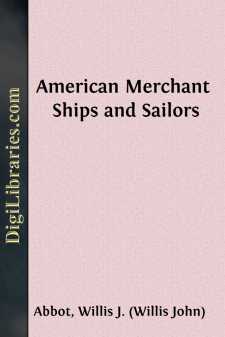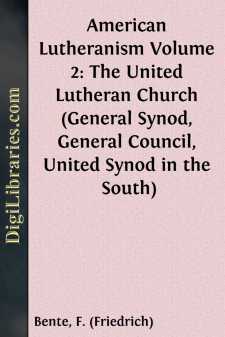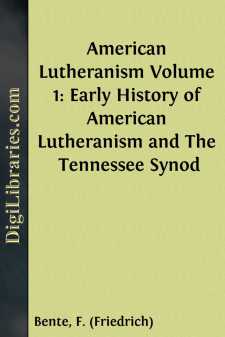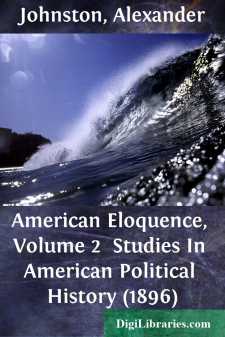History
- Africa 30
- Americas (North Central South West Indies) 50
- Ancient 68
- Asia 58
- Australia & New Zealand 8
- Canada 41
- Caribbean & West Indies 1
- Civilization 20
- Eastern Europe 12
- Europe 310
- Expeditions & Discoveries 60
- General 77
- Historical Geography 1
- Jewish 9
- Latin America 3
- Medieval 8
- Middle East 13
- Military 248
- Revolutionary 8
- Study & Teaching 5
- United States 353
- Western Europe 56
- World 13
History Books
Sort by:
by:
Anonymous
PREFACE. At the election of President and Vice President of the United States, and members of Congress, in November, 1872, Susan B. Anthony, and several other women, offered their votes to the inspectors of election, claiming the right to vote, as among the privileges and immunities secured to them as citizens by the fourteenth amendment to the Constitution of the United States. The inspectors, Jones,...
more...
CHAPTER I Concerning the great quantity of silver and gold which was brought from Cuzco, and of the portion thereof which was sent to H. M. the emperor as the royal fifth: How the imprisoned Cacique Atabalipa declared himself free of his promise which he had made to the Spaniards to fill a house with gold for ransom: And of the treason which the said Atabalipa meditated against the Spaniards, for which...
more...
by:
Danske Dandridge
CHAPTER I INTRODUCTORY It is with no desire to excite animosity against a people whose blood is in our veins that we publish this volume of facts about some of the Americans, seamen and soldiers, who were so unfortunate as to fall into the hands of the enemy during the period of the Revolution. We have concealed nothing of the truth, but we have set nothing down in malice, or with undue recrimination....
more...
CHAPTER I. The American Ship and the American Sailor—New England's Lead on the Ocean—The Earliest American Ship-Building—How the Shipyards Multiplied—Lawless Times on the High Seas—Ship-Building in the Forests and on the Farm—Some Early Types—The Course of Maritime Trade—The First Schooner and the First Full-Rigged Ship—Jealousy and Antagonism of England—The Pest of...
more...
MERGER. 1. Origin of the New Body.—On April 18, 1917, at Philadelphia, the Joint Quadricentennial Committee, appointed by the General Synod, the General Council, and the United Synod in the South to arrange for a union celebration of the Reformation, decided that the merging of the three affiliated general bodies would be "the fittest commemoration and noblest memorial of the four-hundredth...
more...
AMERICAN LUTHERANISM Volume I Early History of American Lutheranism and The Tennessee Synod By F. BENTE St. Louis, Mo. CONCORDIA PUBLISHING HOUSE 1919 PREFACE. Essentially, Christianity is the special divine faith in the truth revealed by the Bible that we are saved, not by our own efforts, works, or merits, but alone by the pure and unmerited grace of God, secured by Christ Jesus and freely offered in...
more...
INTRODUCTION TO THE FOURTH VOLUME. The fourth and last volume of the American Eloquent e deals with four great subjects of discussion in our history,—the Civil War and Reconstruction, Free Trade and Protection, Finance, and Civil Service Reform. In the division on the Civil War there has been substituted in the new edition, for Mr. Schurz's speech on the Democratic War Policy the spirited...
more...
INTRODUCTION TO THE REVISED VOLUME. The third volume of the American Eloquence is devoted to the continuation of the slavery controversy and to the progress of the secession movement which culminated in civil war. To the speeches of the former edition of the volume have been added: Everett on the Nebraska bill; Benjamin on the Property Doctrine and Slavery in the Territories; Lincoln on the Dred Scott...
more...
INTRODUCTION TO THE REVISED VOLUME II. The second volume of the American Eloquence is devoted exclusively to the Slavery controversy. The new material of the revised edition includes Rufus King and William Pinkney on the Missouri Question; John Quincy Adams on the War Power of the Constitution over Slavery; Sumner on the Repeal of the Fugitive Slave Law. The addition of the new material makes necessary...
more...
INTRODUCTORY. All authorities are agreed that the political history of the United States, beyond much that is feeble or poor in quality, has given to the English language very many of its most finished and most persuasive specimens of oratory. It is natural that oratory should be a power in a republic; but, in the American republic, the force of institutions has been reinforced by that of a language...
more...











